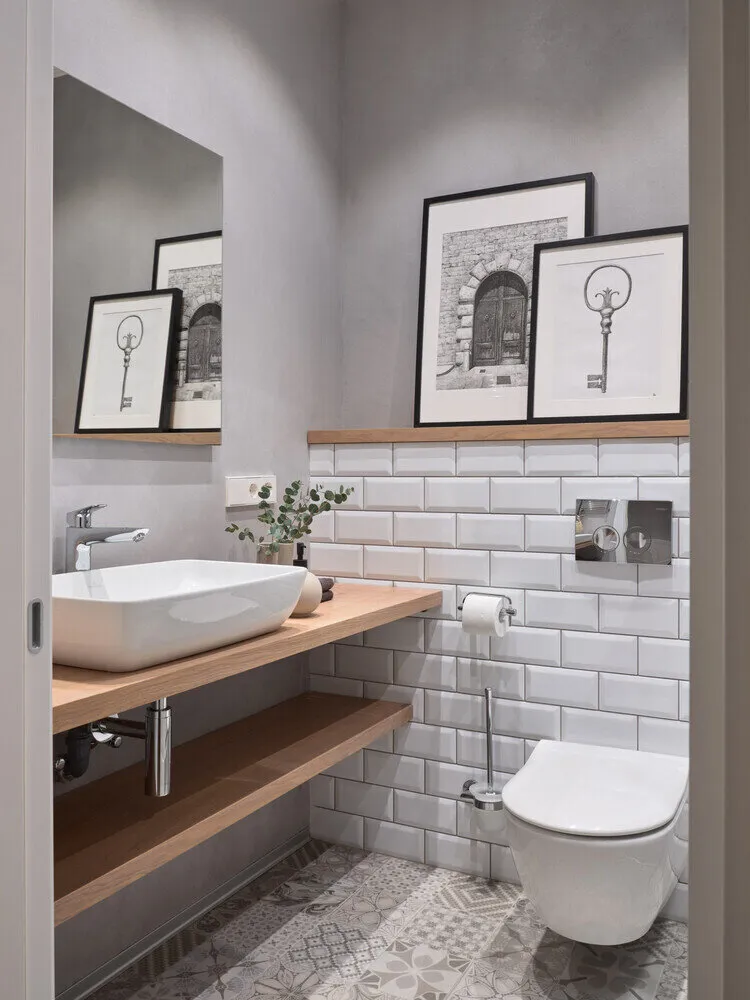How to Tell if a Plumber Is Scamming You for Money
Learn to recognize fraud before the bill starts heading toward bankruptcy
A pipe is leaking, a sink is clogged or a mixer has broken — and you panic-call the first handyman you see. A few hours later, it turns out that 'simple repair' will cost a pretty penny and the problem was actually 'more serious than it seemed'. Sound familiar? The plumbing services market is full of scammers who turn replacing a gasket into a complete system overhaul. Learn to recognize fraud before the bill starts heading toward bankruptcy.
Main points from the article:
- Diagnosing 'serious malfunctions' where simple cleaning or replacing small parts is needed;
- Pushing expensive components instead of repairing existing ones;
- Requesting advance payment for materials before diagnostic work begins;
- Intimidating with emergency situations to get consent for costly repairs;
- Replacing functional parts under the excuse of 'preventive maintenance';
- Working without a detailed estimate and clear pricing for services;
- Using specific terminology to obscure the simplicity of tasks.
The Diagnosis Costs More Than the Treatment
A professional plumber quickly identifies the cause of a problem and offers the simplest solution. A scammer turns diagnostics into a detective investigation, finding new 'critical malfunctions' at every step.
A sink is clogged? 'The issue is in the main stack, we need to replace the entire plumbing system.' A tap is dripping? 'All gaskets in your apartment are worn out, a full replacement is required.' Weak water pressure? 'Tubes are clogged with scale, requires complete re-piping.'
In reality, 80% of plumbing issues are solved by replacing small parts costing under 500 rubles or simple clearing. If a plumber immediately suggests major repair without carefully inspecting the whole system — it's time to be suspicious.
Financial Intimidation
A honest specialist first attempts to repair what's there. A scammer immediately says: 'This can't be fixed, we need to replace it.' Then they propose replacing not just the broken part but all related components.
A mixer broke? 'We need to replace the mixer, the supply line and shut-off valves — old ones won't fit.' A toilet is leaking? 'New plumbing needed, the old model has been discontinued and parts are unavailable.'
Ask to see exactly what is broken and why it can't be repaired. Photograph the damaged parts. In most cases, 'hopeless' problems are fixed by replacing a gasket for 50 rubles or adjusting the mechanism.
Pricing Magic
Scammers rarely state final costs upfront. First, they quote a price for diagnostics or minimal repair and then add fees for every minor detail.
'Work costs 3000 rubles, but materials are needed', 'a gasket is 500 rubles, but without a special tool it can't be changed — an extra 2000 rubles', 'we can do it cheaply, but then everything will break again in a month.' Every action is charged separately.
Request a full estimate before work begins. If the plumber can't give an exact cost, citing 'need to see', arrange a fixed fee for diagnostics. A honest specialist will agree; a scammer will start evasive tactics.
Urgency as a Pressure Technique
A classic tactic: creating a sense of catastrophe. 'If you don't fix it today, neighbors will flood', 'pipes can burst at any moment', 'we need to shut off water in the whole building immediately.'
Under time pressure, people agree to any price and don't verify the necessity of repairs. Yet real plumbing emergencies are rare — in most cases, you can calmly investigate and find the best solution.
If a plumber pushes for an immediate decision, ask them to fix only the critical leak and delay major repairs. See how they react — a honest specialist will agree, a scammer insists on doing everything 'right now'.

Instrumental Deception
'I don't have the right tool, I need to go to a store and buy a special key.' The cost of this 'necessary' tool is added to the bill, even though after work it stays with the plumber.
A professional arrives with a full set of tools for standard jobs. Specialized equipment may only be needed in complex cases, and then rental is much cheaper than purchase.
If a plumber keeps leaving every half hour for 'tools' that cost as much as half your salary — look for another specialist. Most likely, they're just trying to scam you into buying their inventory.
Preventive Sales
Arrived to fix a tap, but proposes replacing all the plumbing 'for prevention'. 'Since I'm here, let's replace everything at once — it'll be more expensive later.' Or: 'See how worn out everything is? Better replace all at once, rather than in parts later.'
Real professionals don't push additional services. They do the ordered job and can suggest what to replace in the near future, but without pressure or intimidation.
Golden rule: one call — one problem. If additional repairs are needed, better schedule them separately after reviewing prices and getting several quotes.
Terminology Manipulation
Scammers love to use technical terms to make clients feel incompetent. 'We need to replace the hydrosiphon', 'the problem is with the check valve', 'pressure reducer calibration required'.
Behind complex names often lie simple operations. 'Hydrosiphon' is a drain under the sink, 'check valve' may be just a gasket, and 'pressure reducer calibration' is just tightening one screw.
Ask for simple explanations of what exactly broke and what needs to be done. If a plumber can't clearly explain the problem in plain language, they either don't understand it themselves or are deliberately confusing.
Warranty Traps
'I offer a 5-year warranty, but only if you replace the entire system.' Or vice versa: 'No warranty on repairs — this is old plumbing.' Both should raise suspicion.
A honest plumber offers warranty on their work, but not on material wear. Typical warranty period for plumbing work is 6 months to 2 years depending on complexity.
No warranty at all — a serious reason to doubt the quality of work. If the specialist is unsure about results, should you even consider working with them?
How to Protect Yourself
Learn basic principles of plumbing. You don't need to become an expert, but understanding simple concepts helps avoid being scammed. Know where shut-off valves are located, how a mixer works, what is a siphon.
Get several opinions for serious issues. If one plumber says major repair is needed, call another for an independent assessment. Often opinions differ drastically.
Check material prices independently. A gasket for 2000 rubles or an 'exclusive' mixer for 50 thousand should raise questions. It's easy to find prices online.
Cover: Design project by Lizaveta Suslova
Need a renovation specialist?
Find verified professionals for any repair or construction job. Post your request and get offers from local experts.
You may also like
More articles:
 Autumn Detox: What Works and What's Just Marketing Hype
Autumn Detox: What Works and What's Just Marketing Hype Repairing a Stalin-era Apartment for Half a Million Rubles: How to Preserve the Era's Spirit and Add Comfort
Repairing a Stalin-era Apartment for Half a Million Rubles: How to Preserve the Era's Spirit and Add Comfort Secrets of Elegance: Coco Chanel's Lifestyle and Style Rules
Secrets of Elegance: Coco Chanel's Lifestyle and Style Rules Ships and Towers: Most Unusual Houses of the 70s-80s
Ships and Towers: Most Unusual Houses of the 70s-80s 10 Trendy Finds That Will Inspire Coziness and Order
10 Trendy Finds That Will Inspire Coziness and Order Chanel's Morning Ritual: Breakfast That Kept a Fashion Icon in Shape
Chanel's Morning Ritual: Breakfast That Kept a Fashion Icon in Shape Myth or Fact: Better Soundproofing in Stalin-era Apartments
Myth or Fact: Better Soundproofing in Stalin-era Apartments 5 Genial Solutions of Khrushchev-era Layouts That Should Be Revived
5 Genial Solutions of Khrushchev-era Layouts That Should Be Revived